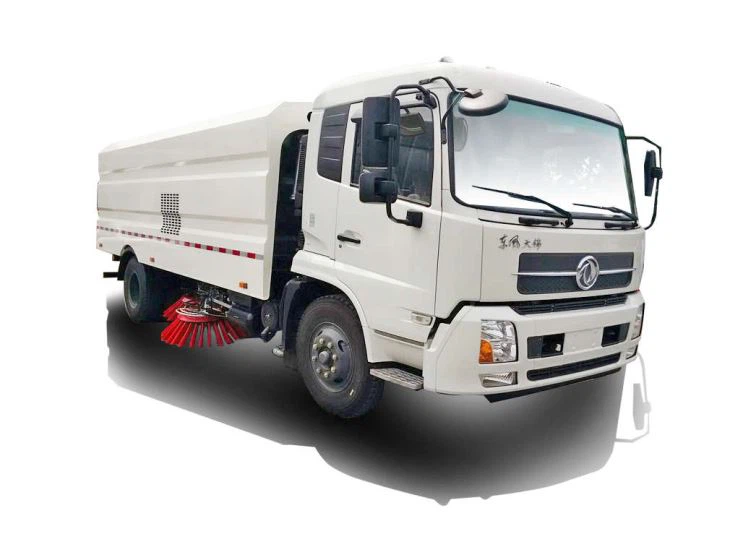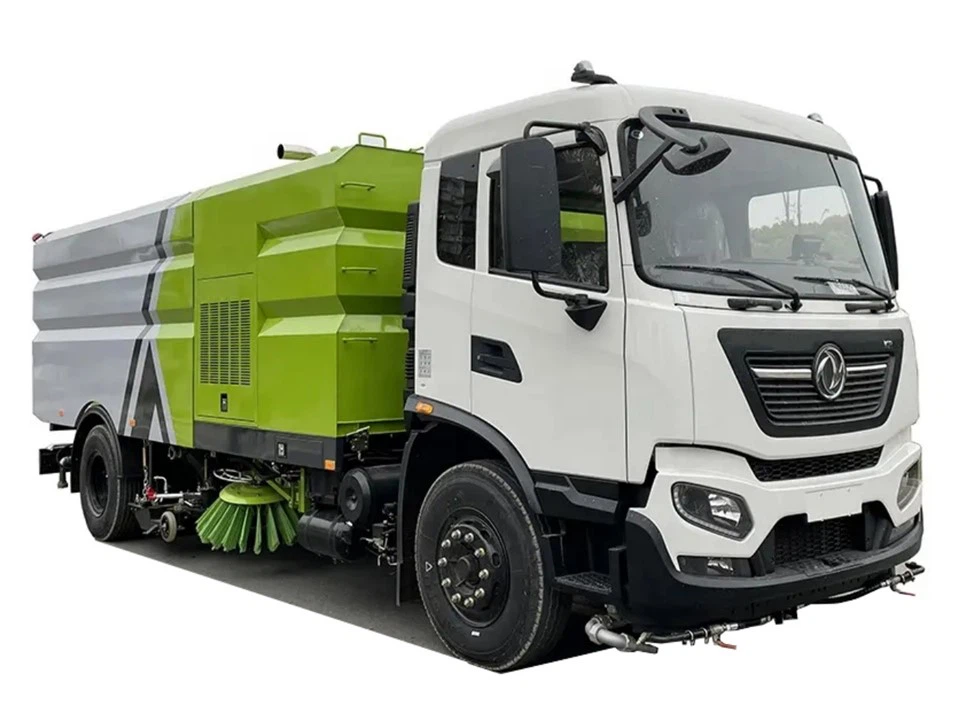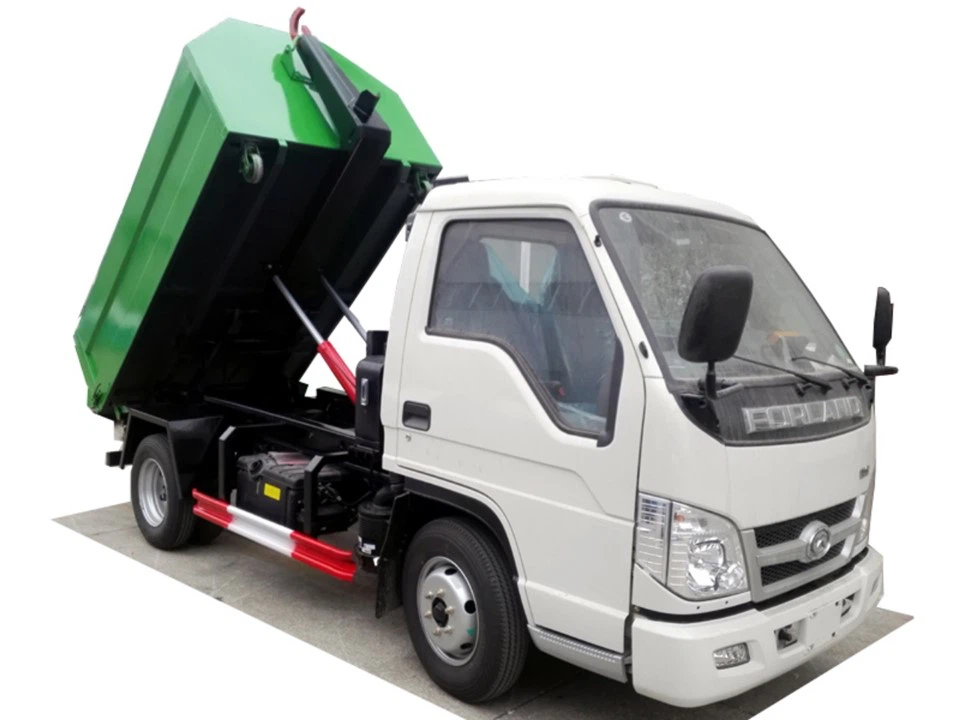Hydro Excavation Truck for Sale: Everything You Need to Know

In the world of construction, utility work, and landscaping, the hydro excavation truck has emerged as a revolutionary tool. This vehicle combines power and precision, utilizing high-pressure water to excavate soil safely and efficiently. If you’re in the market for a hydro excavation truck, understanding its features, benefits, and applications can help you make an informed decision. This comprehensive guide covers everything related to hydro excavation trucks, available options, and factors to consider before making a purchase.
Understanding Hydro Excavation Trucks
A hydro excavation truck is a specialized vehicle designed to use a combination of high-pressure water and suction to excavate soil without damaging underground utilities. This technique is particularly advantageous in urban areas where utility lines are densely packed and vulnerable.
How Hydro Excavation Works
The process of hydro excavation involves the following steps:
- The truck’s water tank stores water, which is heated and pressurized.
- High-pressure water is directed through a nozzle to break up the soil.
- The loosened soil is suctioned into a debris tank via a powerful vacuum system.
This method allows operators to excavate with precision, reducing the risk of damaging existing utilities, which can save time and money on repairs.
Benefits of Using Hydro Excavation Trucks
Choosing a hydro excavation truck comes with numerous benefits that can enhance your projects and operations.
1. Safety and Precision
Hydro excavation is safer than traditional excavation methods. The non-destructive nature minimizes the risk of damaging underground utilities, protecting the workers and site. As a result, operational delays due to accidents are significantly reduced.
2. Efficiency
Hydro excavation allows for faster excavations compared to manual labor. The combination of water and suction makes it easier to remove stubborn soil, meaning jobs can be completed in a fraction of the time traditional methods would take.
3. Environmental Considerations

This method is environmentally friendly as it minimizes soil displacement. The dirt is only removed from the specific area needed, reducing the overall impact on the excavation site.
4. Versatility
Hydro excavation trucks can be used for various applications, including digging for underground utilities, potholing, trenching, and even landscaping. Their versatility makes them an excellent investment for companies in different sectors.
Types of Hydro Excavation Trucks
When searching for a hydro excavation truck for sale, it’s essential to understand the different types available. Below are the main categories:
1. Combination Units
Combination units are equipped with both hydro excavation and vacuum capabilities. They are often used for a range of services in one vehicle, making them extremely efficient for contractors.
2. Dedicated Hydro Excavators
These trucks are designed solely for hydro excavation purposes and typically offer more powerful water jets and suction capabilities. They are ideal for heavy-duty jobs requiring more excavation power.
3. Mini Hydro Excavators
Mini hydro excavators are compact and lightweight, designed for tight spaces where larger trucks cannot access. They are perfect for residential work or small-scale projects.
Features to Look for in a Hydro Excavation Truck
When considering a hydro excavation truck for sale, there are several key features to assess:
1. Water Pressure
Higher water pressure translates to faster excavation. Look for trucks offering pressure ratings from 2,000 to 4,000 PSI for optimal performance.
2. Debris Tank Capacity
The size of the debris tank is crucial for operational efficiency. Larger tanks will allow for extended use without needing to offload waste constantly.
3. Suction Power
The strength of the suction unit is essential as it directly correlates to how effectively the truck can remove debris. Look for specifications stating mercury lift capability – 15″ or higher is ideal.
4. Mobility
A hydro excavation truck should be easily maneuverable, especially if you expect to work in urban settings with limited space. Consider the turning radius and overall size of the vehicle.
Where to Find Hydro Excavation Trucks for Sale

There are various avenues to explore when looking for a hydro excavation truck for sale:
1. Online Marketplaces
Platforms like eBay, Craigslist, and specialized equipment websites often list used and new hydro excavation trucks. You can filter your search based on specifications, price range, and location.
2. Manufacturer Websites
Leading manufacturers often showcase their models and offer direct sales. Research trusted brands like Vermeer, Vactron, and Ditch Witch to find authorized dealers.
3. Auction Sites
Auction sites can be an excellent way to find deals on used hydro excavation trucks. Websites like Ritchie Bros. Auctioneers allow you to bid on equipment on a regular basis.
4. Local Equipment Dealerships
Visiting local dealerships can provide you with the opportunity to see the trucks in person and compare different models directly.
Costs Associated with Hydro Excavation Trucks
Understanding the costs is essential when considering purchasing a hydro excavation truck.
1. Purchase Price
The purchase price can range widely based on whether you choose a new or used truck. New models may range from $200,000 to $500,000. Used trucks can be found for $50,000 to $150,000, depending on their condition and age.
2. Operating Costs

Operating costs include fuel, maintenance, and repairs. Plan for routine maintenance to ensure your truck remains in top condition. It’s also wise to keep a budget for unexpected repairs.
3. Insurance
Insurance is another consideration. Given the value of hydro excavation trucks, ensure you have adequate coverage, which can vary significantly depending on the provider and the truck’s usage.
Practical Examples and Tips for Buying a Hydro Excavation Truck
Here are some tips and real-world examples to help guide your purchase:
1. Assess Your Needs
Before buying, analyze the scale of your projects. If you’re a small contractor focused on residential jobs, consider a mini hydro excavator to save costs and enhance maneuverability.
2. Get a Vehicle Inspection
If purchasing a used truck, always get a professional inspection. An experienced mechanic can help identify potential issues that might lead to costly repairs down the line.
3. Financing Options
Explore various financing options available for purchasing hydro excavation trucks. Many manufacturers and dealers provide financing plans that can help make your investment manageable.
4. Join Local Equipment Groups
Networking with local contractors can give you insights into reliable brands, models to consider, and even shared experiences regarding the maintenance and operation of the equipment.
Frequently Asked Questions
1. What is the lifespan of a hydro excavation truck?
The average lifespan of a hydro excavation truck is around 10 to 15 years, depending on maintenance and usage. Regular servicing can significantly extend its life.
2. Can hydro excavation be used in winter conditions?
Yes, hydro excavation can be utilized in winter, but certain precautions are advisable, such as using heated water to prevent freezing in hoses and tanks.
3. Are there specific licenses required to operate a hydro excavation truck?
Yes, operators typically need a commercial driver’s license (CDL) and may require additional certifications depending on local regulations and the complexity of the job.
4. How much water does a hydro excavation truck use?
A hydro excavation truck generally uses about 1,000 to 2,000 gallons of water for typical jobs, but this can vary based on the project size and soil conditions.
5. What maintenance does a hydro excavation truck require?
Maintenance includes regular inspections of the water system, suction system, hydraulic components, and overall vehicle health. It’s vital to follow the manufacturer’s recommendations for service intervals.
6. Can I rent a hydro excavation truck instead of buying one?
Yes, many companies offer hydro excavation trucks for rent. Renting can be a viable option for those needing the equipment for short-term projects without committing to a purchase.
